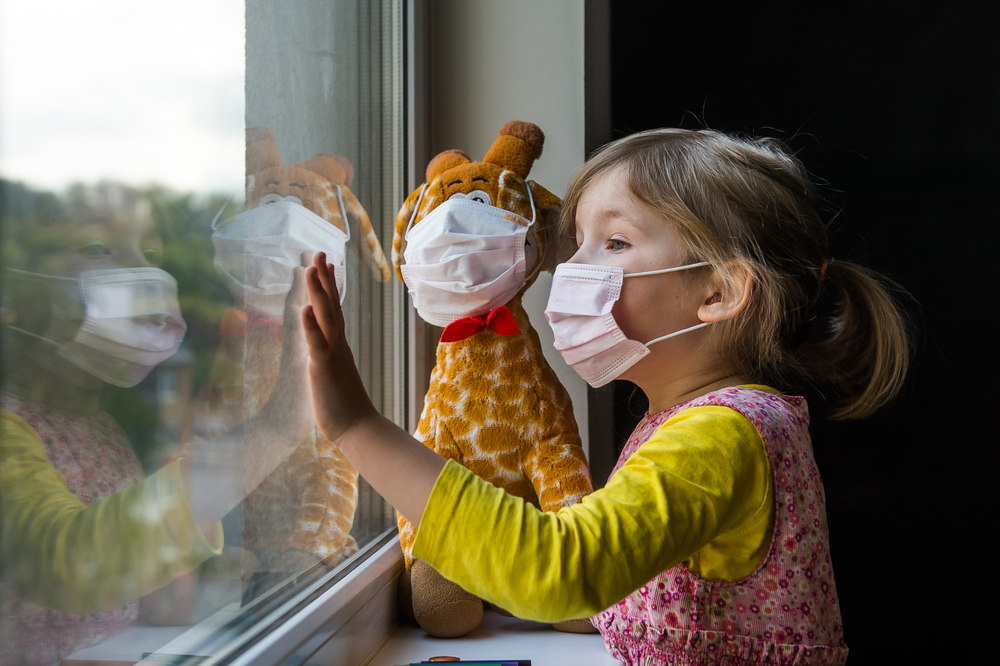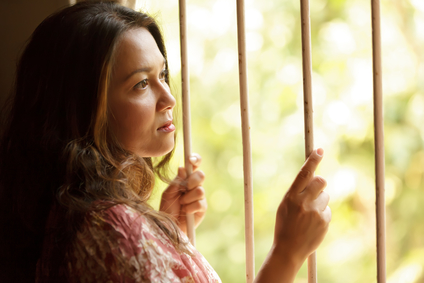The COVID-19 pandemic has forced families to adjust everything from childcare to health hygiene. But if your child is prone to mental health issues around anxiety and obsessive compulsive disorder, the very things you have done to keep your family safe may have inadvertently made your kid’s OCD worse.
Obsessive Compulsive Disorder in Kids
Obsessive compulsive disorder (OCD) is a brain disorder that can first express itself in childhood or the early teen years. It can interfere with a child’s education and social development, as well as their self-care and personal hygiene habits. The disorder involves two distinct parts:
- Obsessive thoughts – intrusive, unwanted thoughts, images, or urges, causing worry, anxiety, or distress.
- Compulsive behaviors – physical or mental activities that the child “must do” to relieve the feelings caused by those obsessive thoughts.
While OCD can center around a variety of childhood worries, two types of obsessive thoughts are especially tied to issues around COVID-19:
- Worry about germs, getting sick, or dying
- Thoughts about losing someone important to the child
This can result in compulsive washing or cleaning, repeated checking, mental compulsions (such as excessive praying or list making), and seeking reassurance. Some of those behaviors have become part of our daily life during the pandemic. You may wonder if, by encouraging frequent handwashing or talking about those lost to COVID-19, you are making your kid’s OCD worse.
Study Finds COVID-19 Made Kids’ OCD Worse
In late 2020, Aarhus University released a study examining whether the crisis caused by COVID-19 had made children’s obsessive thoughts and compulsion symptoms worse. They surveyed over 100 children and young people, ages 7 to 21, diagnosed with anxiety, depression, and OCD. They found that nearly half of kids with OCD experienced worse symptoms during the pandemic, compared to one third of children with anxiety or depression. Judith Nissen, a consultant in the study, said this wasn’t surprising:
“OCD is a disorder with many different clinical expressions, including not [the] least health anxiety, fear of bacteria and dirt, and excessive hand washing/use of disinfection. It’s therefore important to examine how such a significant crisis can affect the expression, frequency and progression of the disorder.”
Kids with OCD Feel Increased Anxiety Over COVID-19 Health Concerns
OCD isn’t a conditioned response. You will not cause OCD in your child by asking them to wash their hands. However, the pandemic has created a high-anxiety environment for everyone. Children who are pre-disposed to OCD (due to genetics or neurobiology) may express the condition in response to a crisis or period of intense stress.
Children who are already anxious about loss are now seeing daily news about illness and death and warnings about the need for isolation and social distancing. Nissen says that children who experience anxiety over something serious happening, including the loss of close relatives, are particularly vulnerable in the time of COVID:
“This may be related to both the direct threat of the infection and to the consequences of having to maintain social distancing, social isolation and the significant level of focus on hygiene. The crisis is not over yet, and it’s therefore very important that we continue to focus on vulnerable children and young people in the future.”
How to Help Your Child Relieve OCD Symptoms and Anxiety
As children are returning to in-person schooling, interpersonal interactions between families with different COVID-19 risk tolerances have the potential to trigger further OCD symptoms and anxiety. If you see your child struggling, you can:
- Validate their anxiety by sharing your own feelings and telling them it is okay to be anxious
- Do what you can to provide certainty, such as scheduling regular calls with loved ones
- Create structure and routines throughout your kids’ day
- Balance challenging “extra safe” behaviors with compassion
- Practice meditation and mindfulness alongside your child
- Limit COVID-related discussions to a set time, or have them outside your child’s hearing
OCD is a serious biological disorder which, if left untreated can interfere with your children’s daily lives. If you think the pandemic has brought out OCD symptoms in your child, you should speak to their doctor or a psychotherapist about what you can do to relieve their symptoms and teach them new ways to cope with the distress caused by their intrusive thoughts.
David Stanislaw is a psychotherapist with over 30 years of experience. He helps children, teens and adults manage obsessive compulsive disorder, anxiety and other psychiatric issues. Contact David Stanislaw to get help for your child today.


 Common Treatments for Depression
Common Treatments for Depression Are Childhood Family Patterns Affecting Your Marriage?
Are Childhood Family Patterns Affecting Your Marriage? 7 Ways Therapy Can Make You a Better Parent
7 Ways Therapy Can Make You a Better Parent